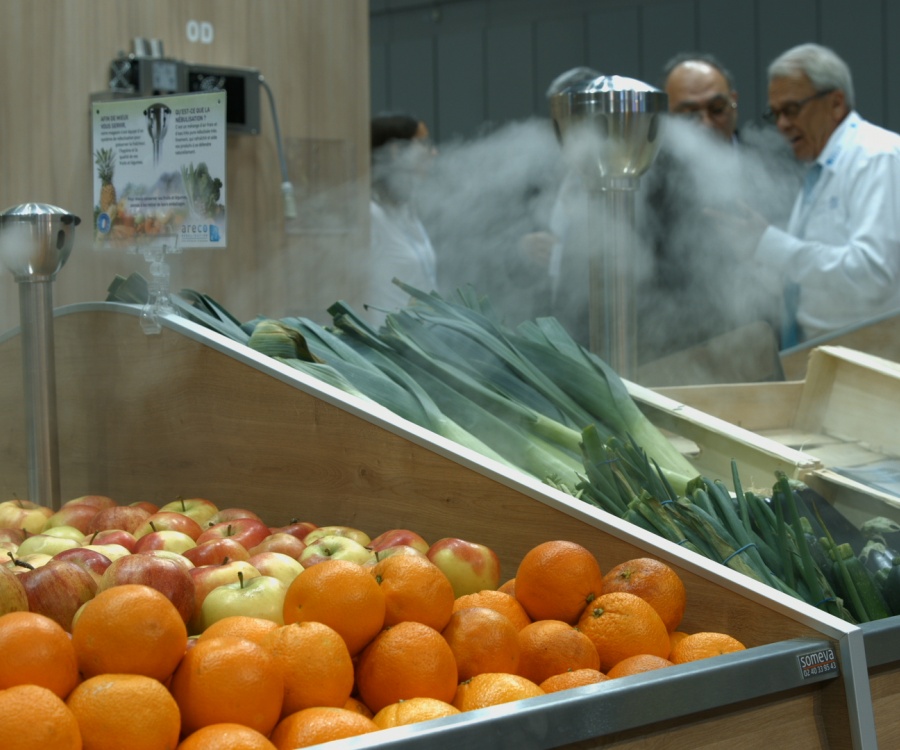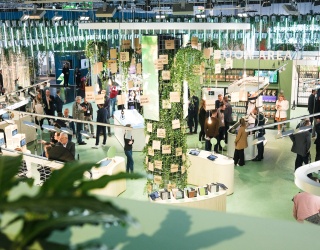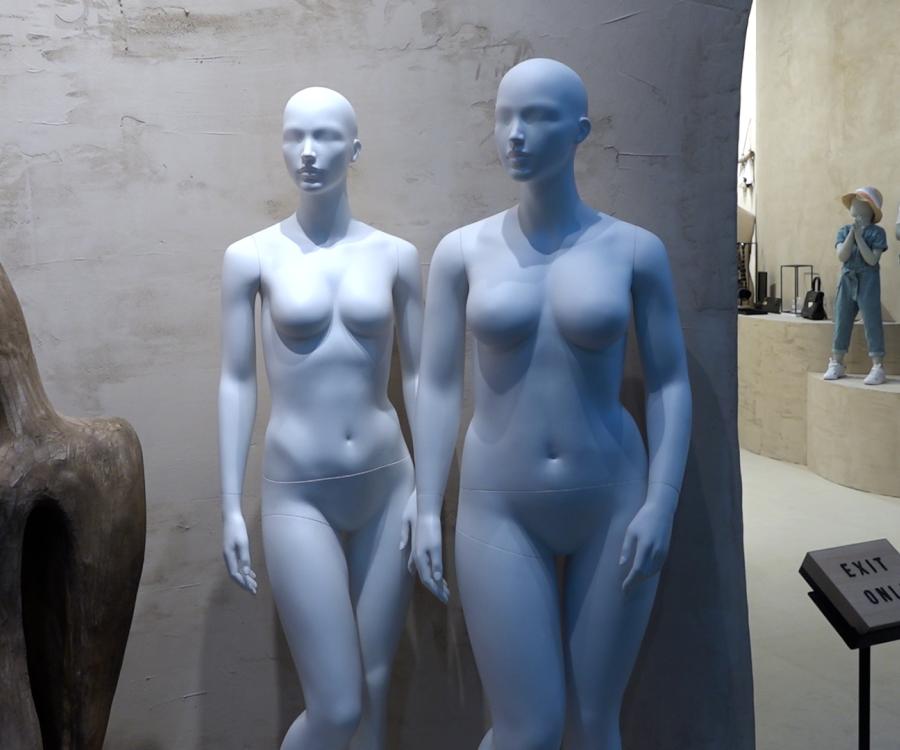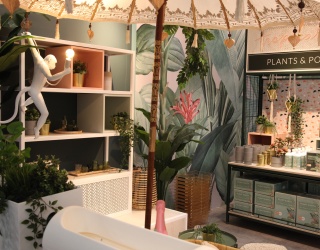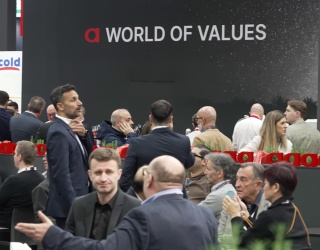The term “sustainability” increasingly becomes a buzzword. Especially in the retail sector, it is difficult to reach a consensus on what sustainability truly means. Is it referring to the sustainable production of materials, recycling and abandoning plastic bags, energy conservation or maybe process optimization in logistics? This much we know for sure: sustainability is no longer just about conserving energy.
EuroShop 2017 distinctly showcased the full spectrum of possibilities in the area of sustainability. The conclusion “retailers are in a great mood to invest“ hits the nail on the head in this case: according to the EHI-Laden-Monitor 2017, the sector currently primarily invests in LED technology, refrigeration technology as well as the retrofit of existing buildings. Grocery and drug stores were most notably seen as eager and willing to invest.
Sustainable design for stores and trade fair booths
Renewable resources or natural materials such as cork or flax are clearly gaining in importance in store and trade show design. And most notably, wood remains an important material in this case.
Having said that, sustainable materials are also a hot topic when it comes to short-term store concepts such as shop-in-shop or store-within-a-store systems. Case in point, at the EuroShop, the Stora Enso Re-board AB Company showcased cardboard material that’s very flexible to use. The entire booth was built using these sturdy yet extremely light-weight boards – ranging from shelves to clothes hangers all the way to dressing rooms. The surface can be custom printed or laminated and is fully recyclable after disassembly. This is a true added benefit for customized and flexible shopfitting and trade show design.

The visual merchandising sector is also emphasizing sustainability. Mannequin suppliers like Genesis have already focused on the sustainable production of models for many years. The manufacturer Cortec takes this yet another green step further. In its quest for raw materials that reduce the carbon footprint of clothes hangers, the company found the answer right at its doorstep – grass. In collaboration with the world’s only “Grasfabrik“ (“grass factory“), the company developed an organic material that is mixed with recycled or biodegradable plastics and can also be used to produce clothes hangers.
According to the EHI-Laden-Monitor, the number one investment focus continues to be LED technology. Expected energy savings and significant improvements in light quality and efficiency considerably boost demand in this area.

Reusable energy sources more sought after than ever before
Exhibitors of the “Food Tech & Energy Management“ Dimension focused on smart, comprehensive multi-store concepts that emphasize the trends towards an increasingly networked energy system that is ever more complex thanks to the inclusion of renewable energy sources.
Whether it’s about the cooling capacity of refrigeration systems or ambient air temperature – utilizing the energy savings potential of your own building is right on trend. In this setting, the Danfoss Company introduced the “Smart Store“ concept at the EuroShop.
In this case, waste heat energy generated by any type of refrigeration system is recycled for use in a supermarket but can also be delivered to the public power supply of the respective urban district, allowing private households to also benefit from this type of thermal energy.
In addition, Daikin fully dispenses with fossil fuels in order to heat, air-condition or vent in as much of a carbon-neutral manner as possible. One crucial factor in reducing energy consumption and costs is also the correct use of equipment. Gunter Gamst, Managing Director of Daikin Airconditioning GmbH explains, “A long-term strategy, professional installation, and maintenance of building technology can drastically reduce costs over the entire life-cycle.“
Here, digital transformation also plays a key role since smart network technologies – intelligent data management based on automated processes – can conserve energy as well.
Martin Wenzel, Board of Management Hörburger AG sums up, “The cloud-based systems and the Internet of Things will yield new possibilities through smart services we can’t even imagine today. Artificial intelligence has also already made its way into building automation to save energy. This area already features established procedures, which are used within the Industry 4.0 realm.“

Sustainability in live communication
Sustainability is also a significant factor in communication that is gaining commercial importance. Not only does this relate to ecological aspects but also addresses economic and ethical concerns.
“Sustainability is currently a trend we are also following in trade show communication,“ explains Jan Kalbfleisch of the FAMAB Association for Direct Business Communications. That is why companies should also put special emphasis on sustainability as it pertains to their marketing activities, for instance when they participate at trade shows or events. What’s more, companies should emphasize a responsible conduct of their service providers.
In addition, since the beginning of this year, large corporations are legally obligated to create sustainability reports and thus pay attention to sustainable action in all areas, true to the motto: act sustainably and talk about it. For retailers, the adoption of efficient energy strategies and positioning themselves as environmentally friendly and sustainable companies will continue to be critical success factors in the future.


